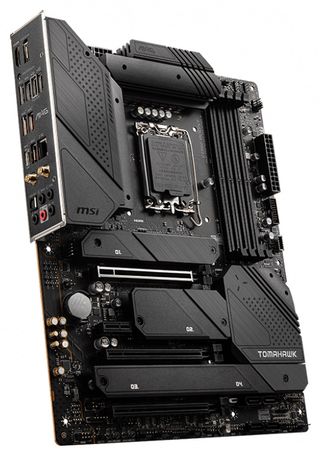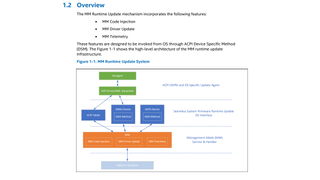New Linux Build Allows BIOS Updates Without a Reboot
Now we just need it to come to Windows.

Phoronix spotted a new Intel open-source project for Linux version 5.17 that allows the operating system to update system firmware, like a motherboard's UEFI or BIOS, without requiring a system restart. This new "PFRUT," or the Platform Firmware Runtime and Telemetry drivers, feature comes as a part of the widely-used ACPI spec, meaning we could see the same approach come to Windows and desktop PCs in the future.
PFRUT gives systems the advantage of not requiring a system restart when you update the BIOS. This feature will be very useful in server deployments where downtime can hinder business operations. Without the requirement to restart, servers are free to update the system BIOS while ensuring critical workloads remain operational the entire time.
At this time, Phoronix notes that this is currently a server-exclusive feature, with no word on if it'll arrive in the consumer space for Linux operating systems.
PFRUT should work very similarly to how you'd normally update a BIOS through Windows or Linux, where the updating process is done through the operating system instead of doing it through the system BIOS directly. But with PFRUT, the operating system will be responsible for executing the entire update process. Whereas, with normal BIOS updates, Windows or Linux will only be responsible for uploading the BIOS and preparing it before restarting and handing off the new BIOS to the motherboard for updating.

We're not sure if there are hardware requirements necessary to support PFRUT. You could either need a motherboard that supports it, or hardware support might not matter at all and the PFRUT driver is all that's needed.
Currently, development has been steady with two new driver updates and a new tool developed this week for PFRUT that allows users to interface with the BIOS updater. Intel also added these drivers to Linux's "Linux-next" branch, planned for the next Linux kernel update, or Linux 5.17.
It remains to be seen if this functionality will come to desktop PCs or Windows. However, since it is based on the ubiquitous ACPI specification, it should be possible to adopt the same approaches for consumer PCs. Here's hoping.
Stay on the Cutting Edge
Join the experts who read Tom's Hardware for the inside track on enthusiast PC tech news — and have for over 25 years. We'll send breaking news and in-depth reviews of CPUs, GPUs, AI, maker hardware and more straight to your inbox.

Aaron Klotz is a freelance writer for Tom’s Hardware US, covering news topics related to computer hardware such as CPUs, and graphics cards.
Most Popular




